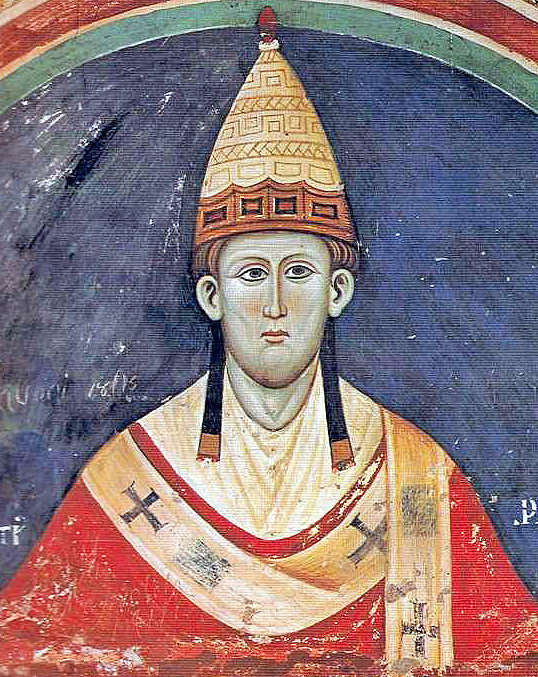.jpg) |
| How do they even know that this is the Magna Carta? It's so hard to read... curse that Olde English. |
Anyways...
 |
| Pope Innocent III: ranked the fifth most innocent Pope of all time. |
So after the barons really got together and grumbled, they went into open rebellion. This isn't in and of itself too big a deal as rebellions were apparently fairly common, as every king after William the Conquerer had to deal with them. William presumedly didn't have to worry about rebellions as people are typically pretty happy when you take over everything for them. What was unusual was the uprising barons had no replacement planned for him as rebellions typically do - the common path is attempting to overthrow the king and throw in a usurper more inclined to help out with the needs of whoever was doing the rebelling. The closest they had was Prince Louis of France, but... he's French. They didn't really want that to happen all that much.
 |
| "So if I don't sign you'll kill me, yes? What fun! I've never been on the receiving end of a death threat before!" |
Remembering that King John had just submitted to the papal authority, the Pope declared Magna Carta null and void - keep in mind that back in the day, the church held a lot of political power to say the least, and it was in the Pope's best interest that the new charter did not go through. The barons were barely out the door when their article was cancelled. Seeing no other alternative, civil war raged between the barons and the crown, as the king was quite clearly never about to let himself be bound by the charter, marking the beginning of the First Barons' War. The barons, aided Prince Louis, killed the king in 1216 and secured the future of Magna Carta. The king's nine year old son was crowned king, but much of the rule was under the Frenchman. They chose the king's son as they had some worries that the Prince would leave them worse off than they had been when they started.
So Magna Carta was founded officially. This led to constitutional law for the English speaking countries and was the legal system used for quite some time. While most of its clauses have been since replaced by ones that, you know, aren't several centuries old, it set the tone for how the law was going to be from then on out - less power for the monarchy, and everyone is subject to the law. Huzah!
Not to be confused with the Magma Carta, a much easier bill to warm up to. Ugh... sorry. There are only so many puns you can make about the Magna Carta.
Famous Historical Figures Say the Darndest Things!
- "The greatest constitutional document of all times - the foundation of the freedom of the individual against the arbitrary authority of the despot." A quote from Lord Denning, whoever that may be. I am quite sure he's a rather big fan of the Magna Carta.
- "Stand fast for the liberty of the church and the realm." Taken from the Barons' Oath.
- "...shameful and demeaning agreement, forced upon the King by violence and fear." Pope Innocent III, expressing his not so found opinion of the document.
No comments:
Post a Comment